Mastering Restaurant Sanitizing: Best Practices for Kitchens and Dining Areas
Master restaurant sanitizing with clear steps for kitchens and dining areas. Learn methods, checklists, and procedures to keep your team safe and...
In a world where food choices are abundant and diverse, many consumers are becoming mindful of what they eat and how it's produced. Certification of non-GMO food products is a robust approach by the food and agricultural industry to reassure consumers of the safety of foods.
In this article, we discover the meaning of non-GMO products and how food businesses can achieve certification for them through verification procedures.
Learn more about the non-GMO certification program and how can our innovative software help you efficiently achieve a significant label for your business.
WHAT WE'LL COVER:
GMO stands for "Genetically Modified Organism." The term GMO applies to any living organic, such as plants, animals, or microorganisms, that have undergone modification on a genetic level.
Gene editing is typically done to add characteristics to an organism and is used in various major industries. A good example is the production of crops resistant to pests, herbicide-tolerant, or extreme weather conditions or infused with enhanced nutritional content.
Some other common examples of GMOs in the market include genetically modified foods, such as corn, soybeans, canola, and salmon.
Using GMOs in agriculture and food production has generated significant debate and controversy. Critics express concerns about potential environmental and health risks and adverse effects of GMOs, including unintended consequences, allergenic reactions, and the long-term effects of consuming genetically modified foods.
As such, the use of GMO products is highly regulated by food agencies and involves several food safety regulations for use. It's important for consumers to be informed about the presence of GMOs in food products and to make choices that align with their preferences and concerns.
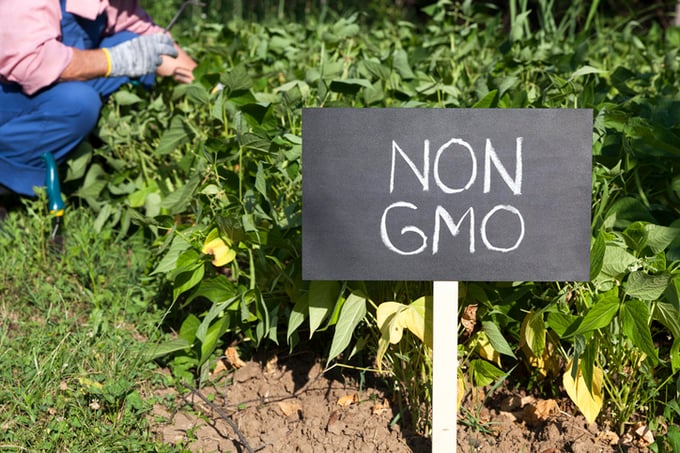
Non-GMO means "Non-Genetically Modified Organism." Products with the non-GMO project seal are naturally produced and are not made with products containing genetically modified organisms.
The term non-GMO or GMO-free label is used on food products to inform consumers that the ingredients have not been genetically modified. This information is critical for customers with concerns about the potential health and environmental impacts of GMO products and boosts customer satisfaction with products.
Regulations for labeling food ingredients and products with the tag "Non-GMO" are set by government agencies to help food producers and food manufacturers.
Businesses can undergo a certification program to achieve non-GMO status, which involves comprehensive operations documentation.
Use FoodDocs' intuitive Food Safety Management System to create the most important monitoring tasks for your non-GMO verification. With the help of our smart software, you can get automatically generated monitoring tasks for your daily food safety tasks, and you can even create new detailed forms to monitor non-GMO requirements.
Build your comprehensive food safety program with the help of our AI-powered software. Start your journey with our free 14-day trial.
Non-GMO products are products made from ingredients that have not been genetically modified. This means that the organisms that produce the ingredients, such as crops or animals, have not had their genetic material altered through genetic engineering or biotechnology techniques.
In the food industry, most products labeled as non-GMO include fruits, vegetables, grains, legumes, dairy products, meats, poultry, and packaged foods. They can either be raw ingredients or products made from ingredients that did not go through genetic modification.
The Non-GMO label, otherwise recognized as the "Non-GMO Project Verified" label, is a widely recognized label used in the US to indicate that a product has met strict standards of being free from GMO ingredients. The label communicates a commitment to industry practices of producing non-GMO products.
The label promotes transparency and compliance with strict health and safety standards. It helps consumers make more informed decisions when purchasing. It also presents several business opportunities to food producers who can secure the label.
Regulations and labeling requirements for non-GMO foods vary by country, with some nations imposing strict regulations and mandatory labeling while others have more permissive policies.
It's important to note that this labeling often indicates the presence or absence of GMOs in products.. Look for "Non-GMO Project Verified" seals or other non-GMO certifications on food products. The Non-GMO Project is a non-profit organization that offers third-party verification and labeling for non-GMO food and products.
Non-GMO logo
"Non-GMO verified" or "Non-GMO certified" is a term usually indicated as product labels that have undergone strict inspection and verification by third-party non-GMO certifiers. The most recognized sign of being non-GMO verified is the label distributed by the Non-GMO Project.
Becoming non-GMO verified is a voluntary decision made by food producers who want to enjoy the program's benefits.
Undergoing the process means subjecting the business to a comprehensive verification process, laboratory testing of products, proper labeling verification, and ongoing monitoring of everyday operations.
Being non-GMO verified offers a great deal of benefit for producers as they claim to be the healthier and safer choice of products. Non-GMO verification steps are also guided by the regulations and standards established by the U.S. Food and Drug Administration and U.S. Department of Agriculture (USDA) for genetically modified ingredients and products.
Third-party certifying organizations typically conduct non-GMO certification or verification. These certifiers specialize in evaluating non-genetically modified products and have the capacity to conduct in-depth testing for accurate results.
While the FDA and the USDA lay out regulations and certify GMO products, these two government organizations do not certify non-GMO products.
Here are some examples of third-party certifiers and organizations involved in non-GMO certification:
The availability of non-GMO certifications may significantly vary based on the location. This also includes the standards that a business has to comply with. Businesses must carefully select which certification body and business objective aligns with their goals.
Different organizations that confirm if a product is non-GMO might have slightly different rules. Accredited third-party certification groups give clear instructions on whether a product is non-GMO or not.
Here are some of the common elements on every non-GMO standards list:
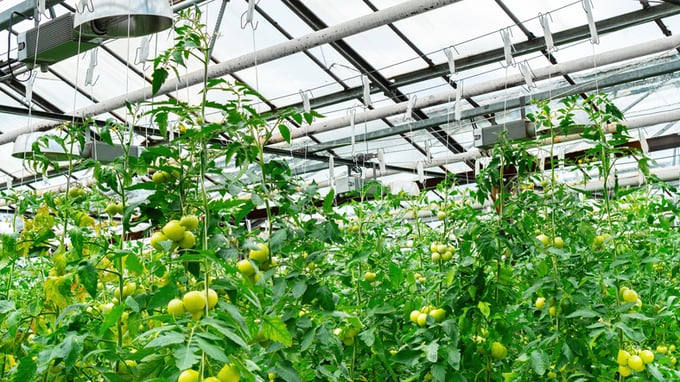
Fulfill all major recordkeeping, monitoring, and traceability standards from non-GMO certifications with the help of FoodDocs' smart Food Safety Management System. Using our smart software, you can get automatically generated monitoring tasks, including auditing tools that you can use to verify your compliance with non-GMO standards before the actual certification.
You can also use our system to record supplier information and ensure that all supplies you use are non-GMO. Monitor all food safety tasks using our Food Safety App compatible with any device.
The importance of non-GMO certification affects various stakeholders in the food industry, including farmers, producers, retailers, and even consumers. The certification addresses health and safety concerns from the unintended effects of consuming GMO products.
Non-GMO certification generally helps promote healthier and safer food production and environment. Processing foods as non-GMO helps ensure that food businesses comply with ethical practices and prioritize the environment's health, similar to organic farming.
There is a widespread belief that foods compliant with organic regulations are non-GMO. This belief comes from the general requirement of organic production certification that foods must be non-GMO.
While international standards assure that a product containing the organic label is non-GMO, not all non-GMO products are organic produce.
Food makers can use traditional production practices to create non-GMO products, which may include conventionally grown or processed foods that have been made without genetically modified processes.
Non-GMO certification programs, such as the Non-GMO Project, focus solely on the absence of GMOs and do not necessarily address other aspects of organic farming practices, such as pesticide use, soil health, animal welfare, and organic finished products.
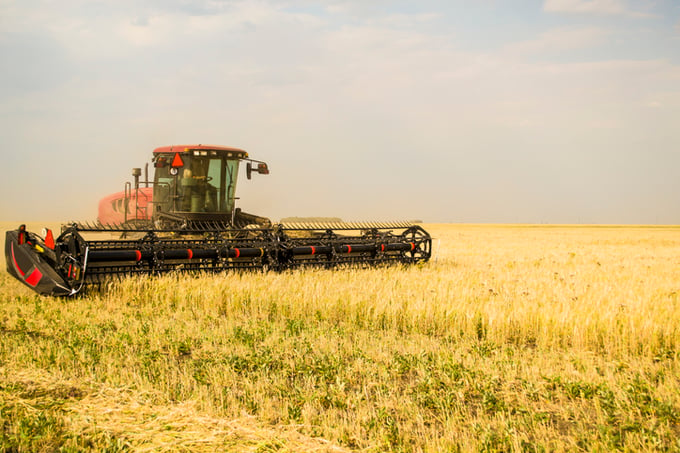
Getting a non-GMO project verified is a long and comprehensive process that involves rounds of food safety inspections, documentation reviews, and laboratory testing protocols. These steps are all essential to ensure that a particular product line or product in your business is certainly non-GMO.
Here are the general steps to get a product Non-GMO Project verified:
How to get non-GMO verified poster
The Non-GMO Project verification provides clear resources that contain basic information about non-GMO standards and the product evaluation they will perform.
After securing an application, provide detailed information about your product, including its ingredients and sources. The Non-GMO Project will assess whether your product is eligible for verification based on this information.
The Technical Administrator is a third-party representative and a strategic partner who will assist your team in the verification process and provide a wide range of solutions in case of non-compliance. They are individuals with expertise in non-GMO verification. The Non-GMO Project can provide a list of approved administrators.
The license agreement outlines your intended participation in the program and how to use the Non-GMO Project's trademarks.
At this stage, your products, ingredients, and sourcing will be evaluated with the help of the Technical Administrator. The evaluation may involve laboratory testing of products, documentation review, and verification of non-GMO criteria compliance. Residue testing for high-risk feeds and foods requires stricter procedures.
Maintain detailed records of your product's ingredients, sourcing, and verification process. Documentation is essential to demonstrate compliance with Non-GMO Project standards.
Once proven non-GMO compliant, the Technical Administrator will submit your verification documents and application for review. The Technical Administrator will provide you with a Certificate of Verification.
The Non-GMO Project will review the application and supporting documentation to decide on certification. If your product meets all criteria, you will receive Non-GMO Project Verification and the official label or seal.
Once your product is verified, you can display the Non-GMO Project Verified seal on your packaging, marketing materials, and website. This seal serves as a clear indicator to consumers that your product is free from GMOs.
The assigned Technical Administrator will continuously work with your team to maintain the non-GMO project-verified product. The verified product or process will undergo an annual evaluation for compliance. Adding new products and processes to the non-GMO program will require re-evaluation.
Use our smart software to navigate and maintain organization throughout your verification process. Present all monitoring and documentation tasks organized with the help of FoodDocs' smart Food Safety Management System. Create customizable monitoring tasks and record verification progress to support your Technical Administrator.
Achieving the non-GMO certification is a significant accomplishment for any food business. It can help you attract more health-conscious customers and gain solid customer confidence. Despite this, attaining the non-GMO food label is a challenging task.
The process requires several compliance assignments that involve establishing a comprehensive monitoring system to ensure non-GMO standard compliance.
Use FoodDocs' flexible smart Food Safety Management System to document and achieve Non-GMO Project compliance efficiently. Further we will highlight 5 most important features of FoodDocs you'll use for getting non-GMO verified:
Our smart Food Safety System features an intuitive Traceability System with Production Management features. Using this system feature, you can easily log information about non-GMO products, along with information such as their expiration dates, recipes, and proper handling instructions.
Our Traceability System also allows you to attach monitoring tasks involved in handling and monitoring non-GMO products for more complete traceability information. In addition, you can attach supplier information as proof of non-GMO compliance.
Using this feature, you can plan production batches involving non-GMO products. Select recipes, recalculate ingredients according to target yield, and ensure no cross-contamination will occur involving your non-GMO products with clear instructions from our Traceability System.
This Traceability System satisfies one of the major requirements for non-GMO certification.
Using our intelligent Food Safety Management System, food businesses seeking non-GMO project verification can document all compliance activities using our customizable monitoring tasks.
You can use our automatically generated monitoring tasks targeted towards documenting robust food safety practices or create new detailed forms fit for monitoring non-GMO verification-related activities.
Our experts built the monitoring task generation easy-to-follow for new and existing customers. Each step is strategically laid out for making detailed tasks or checklists. Incorporate standards to be monitored from the non-GMO Project standards and use our Food Safety App for monitoring.
Use these monitoring logs and attach information about your suppliers and product information as additional proof of compliance with non-GMO standards.
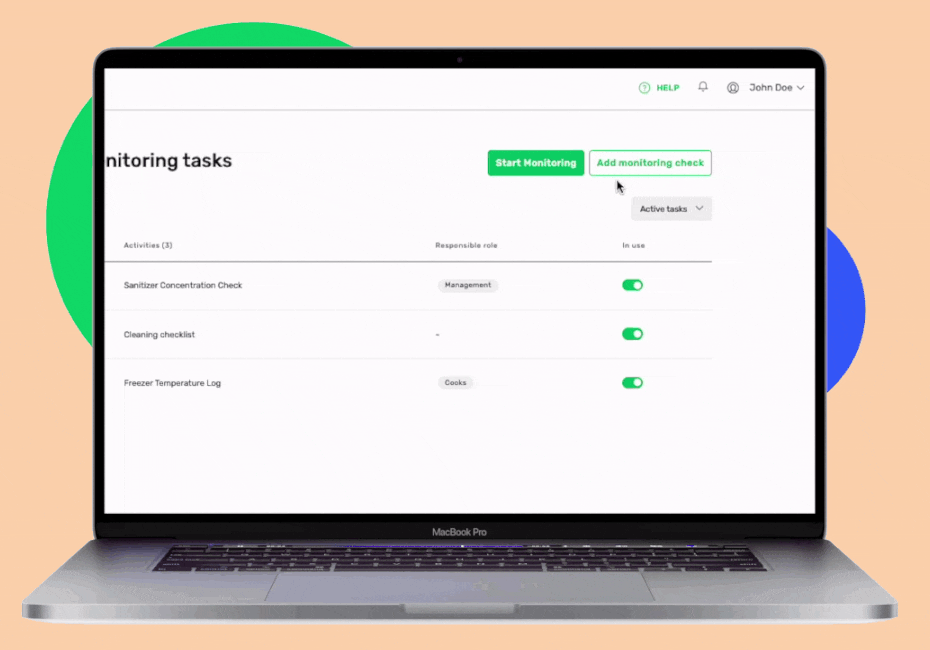
Lead your team and ensure that everyone is on board with your approach to food safety and non-GMO verification compliance with detailed instructions of tasks.
All automatically created monitoring tasks from our system come pre-uploaded with detailed, step-by-step instructions for food safety tasks. You can use this to train new employees and ensure they have sufficient knowledge of proper handling practices.
In addition, managers are allowed to upload their versions of the instructions. Create instructions for non-GMO verification procedures and ensure that all employees are well-informed and will not cause cross-contamination.
Verify whether your business operations are compliant or lacking in some of the non-GMO Project standards by conducting internal audits and inspections through our Food Safety App. Upload pre-existing audit lists into our system or create your auditing list based on the guidelines provided by your Technical Administrator.
Conveniently perform audits before the actual inspection to ensure that your team is prepared and fully compliant. Use the provided standards and guidelines and create auditing lists. The results from these auditing tools can be used to evaluate further if your operations require more planning and compliance.
In case of improvement demands after the inspection, quickly incorporate notes from the inspector into your auditing tools and use them to review your system again.
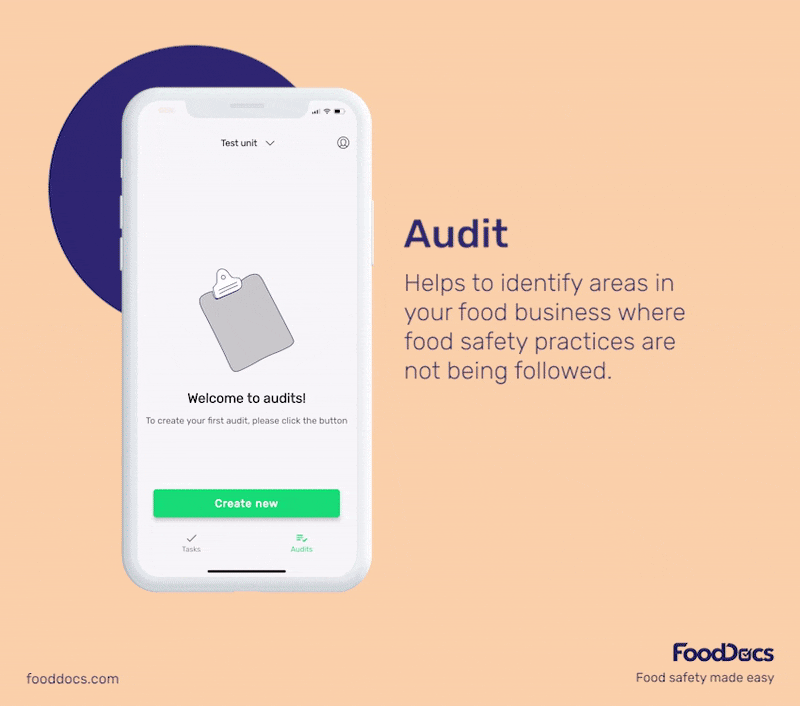
Manage your compliance progress with the help of our smart software's real-time dashboard. With this feature, managers can get a quick overview of tasks fulfilled in a day and gain complete compliance control.
Using our real-time dashboard, you can easily detect which areas require more attention to ensure that every non-GMO standard is complied with accurately. Apply corrective actions as soon as you detect them with the help of our dashboard.
Save at least 20% of your time managing your team with the help of our real-time dashboard.
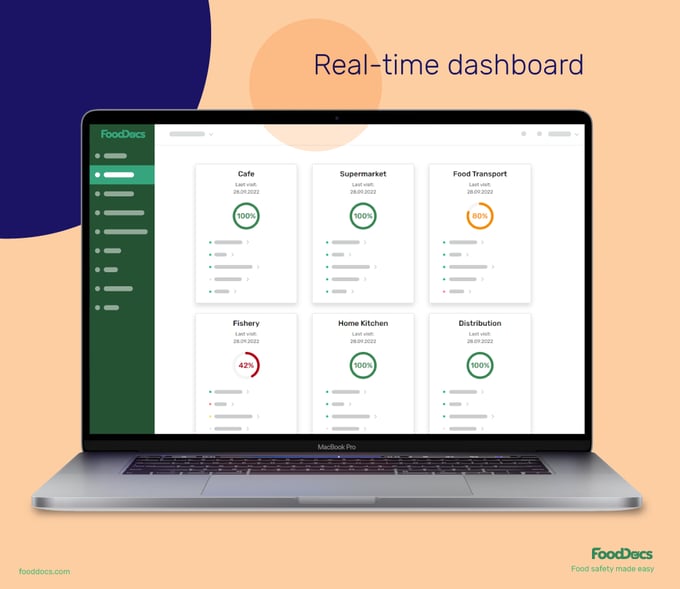
While the non-GMO certification process is long and requires much attention, our smart Food Safety Management System can help you fulfill tasks and comply more efficiently.
Our smart solutions can help you ensure that your commitments to food safety and human health assurance are consistently achieved, even after securing the non-GMO verified label. With the help of our intuitive software, you can cover all requirements for documentation, recordkeeping, and traceability of operations.
Achieve compliance and maintain non-GMO standards throughout your operations with the help of our smart Food Safety Software.
Explore our system with our free 14-day trial and discover how we can help you achieve non-GMO certification efficiently.
You can also book a one-on-one demo interview to learn more about how our smart software can help you achieve the non-GMO label efficiently.
To help you understand more about Non-GMO certification, here are a few of the most common questions asked regarding this topic:
GMO stands for "Genetically Modified Organisms," referring to organisms whose genetic structure has been changed through genetic engineering. GMOs are often bioengineered foods that have more resistance to unfavorable environmental factors.
Non-GMO ingredients or foods are generally considered beneficial in the supply chain because they are free from genetically modified ingredients. While there is ongoing debate about the safety of GMOs for humans, choosing certified non-GMO products is a way for some people to avoid adverse health and environmental concerns linked to GMOs.
However, it's essential to note that its GMO status does not solely determine the nutritional quality of a food product.
To be GMO-free means that a product or organism does not contain genetically modified ingredients or has not undergone genetic engineering to modify its genetic material. It may also refer to products that have not undergone any process that may unintentionally alter their genetic materials. GMO-free status is often communicated through product labels to promote transparency.
"Non-GMO Project Verified" means that a product has undergone a thorough verification process conducted by the Non-GMO Project, a non-profit organization. This verification confirms that the product and its ingredients do not contain genetically modified organisms (GMOs) or genetically engineered components.
ISO 9001 and ISO 22000 are international standards that cover different areas. ISO 9001 covers product quality management for different industries and not just food businesses. The standard aims to enhance the overall business process.
The ISO 22000 standards, on the other hand, focus specifically on establishing effective food safety management, ensuring safe production and handling of foods, and customer satisfaction.
Master restaurant sanitizing with clear steps for kitchens and dining areas. Learn methods, checklists, and procedures to keep your team safe and...
Learn challenges healthcare foodservice teams face today and key food safety practices to protect vulnerable patients. Get a free healthcare leader...
Learn what Standard Operating Procedures (SOPs) are and how to write effective SOPs that ensure consistency, efficiency, and safety in your...